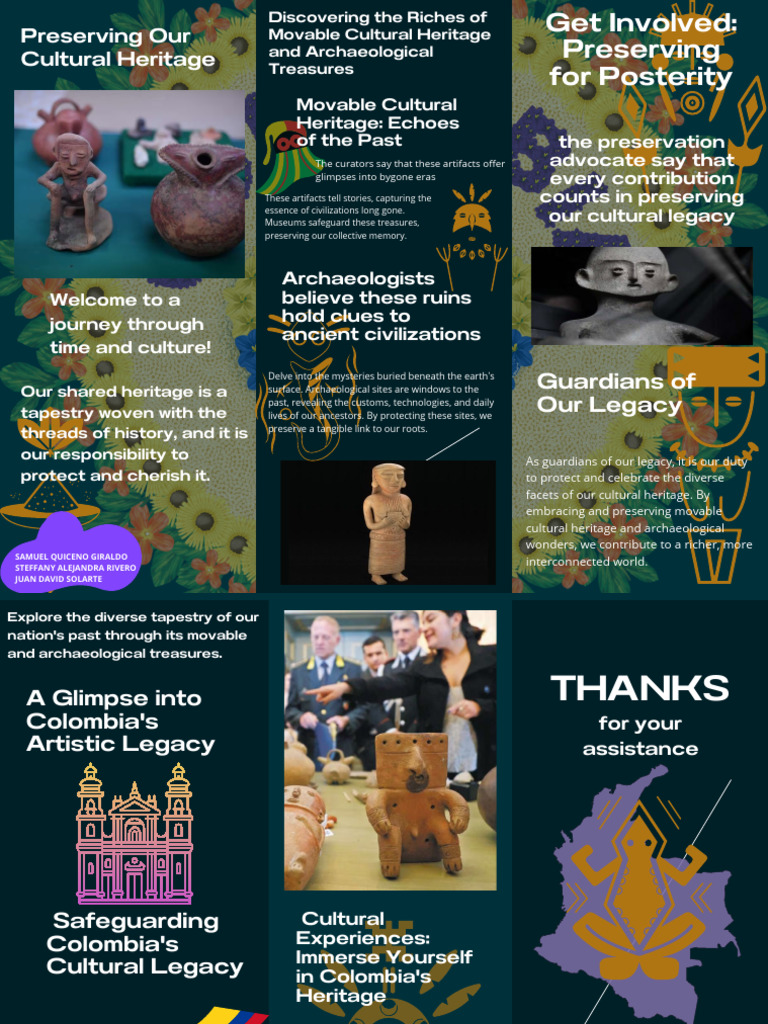Preserving local cultural knowledge is increasingly crucial in our rapidly homogenizing world. As globalization accelerates, unique customs, languages, and traditions face the risk of obsolescence, with many disappearing altogether. This alarming trend necessitates a deliberate shift in perspective—a recognition that local cultural knowledge not only enriches humanity’s collective heritage but also bears a wealth of practical wisdom that can inform sustainable living practices.
At its core, cultural knowledge encompasses the beliefs, practices, languages, and histories that define a community. This intricate tapestry is woven through generations, often passed down orally or through communal practices. Yet, modernity’s relentless march poses threats—such as climate change, urbanization, and digital encroachment—that can erode these time-honored threads. Thus, cultivating curiosity about local culture can illuminate pathways to its preservation and revitalization.
One of the foremost promises of engaging with local cultural knowledge is the potential for ecological stewardship. Indigenous peoples, for instance, have cultivated partnerships with their environments for millennia, often as the custodians of vast ecosystems. Their holistic understanding of local flora and fauna, land management practices, and sustainable resource usage reveals meaningful alternatives to contemporary methods that have led to ecological degradation. As climate change intensifies, the wisdom grounded in these practices can be invaluable.
The relationship between cultural knowledge and biodiversity cannot be overstated. Areas with rich cultural heritage often coincide with high biodiversity. Indigenous crop varieties and traditional agricultural methods restore ecological balance, enhance soil health, and combat climate-related challenges. Such practices are repositories of information honed over time through trial and error. Validating and integrating these ancient techniques into modern agriculture invites a dialogue between the old and the new, fostering an innovative yet respectful approach to food security.
Moreover, localized knowledge systems enhance community resilience. In the face of climate change-induced natural disasters—be it floods, droughts, or wildfires—communities that embrace their cultural heritage bolster their ability to adapt and recover. Traditional building techniques, weather prediction based on Indigenous signs, and culturally rooted social cohesion are vital assets. Each of these elements contributes to a robust framework for enduring adversity. Elicit community elder perspectives; they offer backstory paired with wisdom, crucial for navigating emergent challenges.
Enhancing awareness of local cultures also piques curiosity about local histories. It captivates individuals, igniting a passion for exploration and engagement. Crafts, folklore, rituals, and festivals illuminate a community’s identity and instill pride among its members. This intersection of culture and personal identity serves as a motivator for preserving these narratives. Young people, enthralled by their ancestry, are more inclined to adopt sustainable practices that honor their lineage. Thus, reimagining traditional knowledge through contemporary lenses invites innovative approaches to sustainability.
Continuing on this trajectory of curiosity, the arts offer another venue through which local cultural knowledge can flourish. Art, with its myriad forms—music, dance, visual arts—acts as a vessel for cultural expression. Artistic endeavors often delve into the environmental narratives of a community, reflecting landscapes, relationships, and possible futures. By creating spaces for artistic convergence, communities invigorate their traditions while simultaneously nurturing innovation. This artistic rekindling fosters collaboration across generational lines, thereby nurturing mentorship and cross-pollination of ideas.
In order to protect local cultural knowledge effectively, robust mechanisms for documentation and transmission must be established. Digital tools and community archives offer exciting opportunities for preserving these narratives. Documenting oral histories through audio recordings or creating digital platforms for stories ensures that both current and future generations can access their heritage. Concurrently, local educational initiatives that emphasize the importance of cultural knowledge can cultivate an informed populace that advocates for preservation.
Engaging in partnerships stands as a vital component in this preservation endeavor. Combine the efforts of local governments, non-profits, academic institutions, and community groups to create a symbiotic relationship focused on sustainability and cultural vibrancy. For instance, eco-tourism initiatives that respect and showcase Indigenous traditions not only empower local communities but also educate visitors about the essential ties between culture and ecology. This approach limits the encroachment of mass tourism while fostering curiosity and appreciation.
Preserving local cultural knowledge also requires intergenerational dialogue. Young people can serve as vehicles for transmitting knowledge, blending traditional understanding with modern insights. Engaging them in cultural practices ensures that these customs remain dynamic rather than static relics of the past. Moreover, creating spaces where both elders and youth can learn from one another rejuvenates cultural practices for contemporary relevance. Collaborative activities provide a fertile ground for adapting traditions in ways that align with current circumstances.
Lastly, fostering an environment where local cultural knowledge is valued empowers communities to take ownership of their narratives. Resistance to cultural erasure must be championed at the individual, organizational, and governmental levels. Community-led movements advocating for legal protections of Traditional Knowledge and Oral Histories can mitigate the risks of appropriation and misrepresentation. A concerted effort to safeguard cultural practices and promote their relevance stands as a testimony to the community’s identity and resilience.
In conclusion, the preservation of local cultural knowledge is not merely an act of nostalgia or a fight against erasure; it is a vital, living process that interweaves the past with the present and future. By embracing and revitalizing cultural wisdom, communities not only sustain their identity but also contribute foundational insights for addressing modern challenges, particularly those posed by climate change. It offers a rich repository of knowledge that can inform sustainable practices and foster resilience, intertwining ecological health with human heritage. Curiosity about our local cultures can lead to discovering new pathways that honor tradition while charting a sustainable future.
